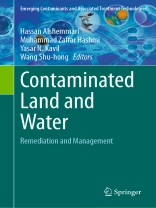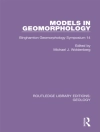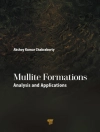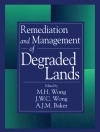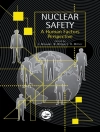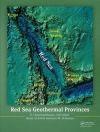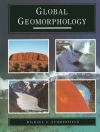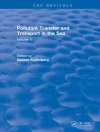This edited volumes contains overviews and case studies of land and water contamination and remediation from international scholars, most from developing countries. Contaminated land contains substances that are actually or potentially hazardous to health or the environment. Areas with a long history of industrial production are known as brownfield land. Land contamination can result from a variety of intended, accidental, or naturally occurring activities and events such as manufacturing, mineral extraction, abandonment of mines, national defense activities, waste disposal, accidental spills, illegal dumping, leaking underground storage tanks, hurricanes, floods, pesticide use, and fertilizer application. Chemical contamination of land has degraded this important ecosystem quality. This book provides our current understanding of land pollution and water pollution in areas such as estuaries. Topics presented include major types of pollutants in contaminated land ecosystem; factors affecting the fate of pollutants in contaminated land; biomonitoring approaches to assess the contaminated land health, and chemicals impact on human health, land microbial diversity and climate change. The book further explores persistent organic pollutants, arsenic and heavy metals pollution of contaminated land and their impact on rice quality. The last chapters focus on the sustainable management and treatment of contaminated land and water.
Зміст
Chapter 1: Ecotoxicology and risk assessment of contaminated water.- Chapter 2: Nutirent contamination in water.- Chapter 3: Contaminant types and nature of sources in general aspects.- Chapter 4: Contaminated Land/Water Microbial Diversity and Enzymatic Activity in Relation to Pollution.- Chapter 5: Impact of Biochar on the Pollutants in Contaminated Land and Fertility.- Chapter 6: Isotopic Tools for Tracing Water Pollutants.- Chapter 7: Nutrient Contamination in Water.- Chapter 8: Pesticides in aquatic sediments – a global perspective.- Chapter 9: Biodegradation of POPs in contaminated land/water.- Chapter 10: Risk assessment of organochlorine pesticides, polycyclic aromatic hydrocarbons, and polychlorinated biphenyls in agricultural soils from the Siling reservoir watershed.- Chapter 11: An overview of heavy metal pollution in aquatic sediments around the world.- Chapter 12: Polycyclic aromatic hydrocarbons (PAHs) in the Aquatic environment –
a rudimentary approach.- Chapter 13: Recent advances in degradation of textile dyes in wastewater under UV visible wavelength by nanocomposite: a review.- Chapter 14: Health risks assessment of heavy metals in wastewater to livestock from Punjab province, Pakistan.- Chapter 15: Meso and microplastics in the marine environment: an overview.
Про автора
Dr. Hassan Alshemmari is a renowned environmental scientist. He has vast experience in the environmental analysis and assessments. He has been involved in various analytical methodology developments and instrumentation over the last 25 years on trace metals and organic pollutants in different environmental matrices. He is currently serving as Director for the Stockholm Convention Regional Center for Capacity-Building and the Transfer of Technology for West Asia. Alshemmari is the key person who will be responsible for the elaboration of the NIP for Kuwait. Alshemmari has published numerous ISI publications in his field and he has been involved in the plentiful international technical reports. He is serving as a member of various scientific societies. He was actively involved in the various organization meetings (Stockholm, Basel, Minamata, Rotterdam, etc.) and he is an invited special fellow and consultant in various international projects as well.
Dr. Muhammad Zaffar Hashmi is an Associate Professor of Environmental Science at Health Services Academy Islamabad, Pakistan. Dr. Hashmi works on multiple water, soil, air and health related issues, and has expertise in developing environmentally sustainable and feasible technologies.
Dr. Yasar N Kavil is a young scientist in the field of environmental chemistry and marine chemistry. He received his Ph.D. in Marine Environmental Chemistry from the prestigious university, King Abdulaziz University (QS-2021 World ranking 109), Saudi Arabia. He has a good experience in the environmental analysis and the impact assessment studies. He has published a good numbers papers in the international reputed journals. He has actively involved in the various assessment project includes, ‘Establishment of west Asia regional center for persistent organic pollutants (POPs) in Kuwait’, ‘Kuwait’s NIP for SC’, ‘EIA of Jeddah Coastal Zone’, etc. Currently he is involving in the various projects at SCRC-Kuwait, serving as the Consultant for Sultanate of Oman and State of Palestine for updating and implementation of their NIP under the obligations of SC and Consultation work at King Abdulaziz University and REC, Saudi Arabia.
Dr. Shuhong Wang is Professor of Environmental Geotechnical Engineering at the Department of Civil Engineering, College of Resource and Civil Engineering, Northeastern University (NEU), China. He has published 1 book with Elsevier and several SCI papers.
